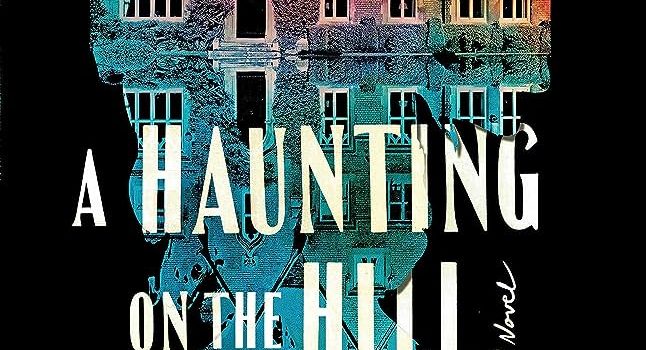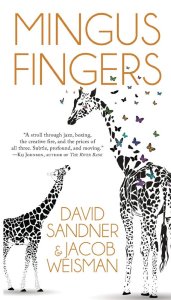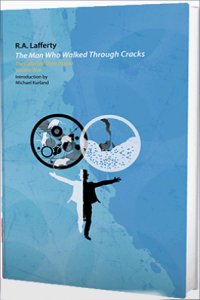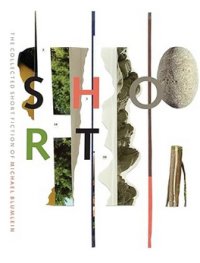Gary K. Wolfe Reviews A Haunting on the Hill by Elizabeth Hand
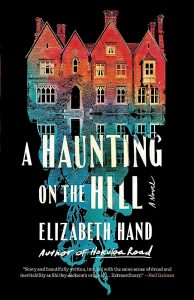 A Haunting on the Hill, Elizabeth Hand (Mulholland 978-0-31652-732-3, $30.00, 336pp, hc) October 2023.
A Haunting on the Hill, Elizabeth Hand (Mulholland 978-0-31652-732-3, $30.00, 336pp, hc) October 2023.
Angry architecture of one sort or another has been a fixture of Gothic fiction since Walpole and Radcliffe – long before it evolved into the haunted house story as we know it today–and it shows no sign of loosening its grip on our imagination (even Disney was at it again this summer). Only a few months ago we saw T. Kingfisher’s A House with Good Bones, and now here are Elizabeth Hand’s A Haunting on the Hill and Alix E. Harrow’s Starling House, both of which owe something to Shirley Jackson’s The Haunting of Hill House. But then, a good argument could be made that just about every haunted house tale for the past 60 years owes something to Jackson’s classic, which has often been cited (even by Stephen King) as the 20th century’s quintessential treatment of the theme. With its masterfully nuanced language, its carefully calibrated sense of dread, its insights into psychology and trauma, and – perhaps above all – its disciplined sense of restraint, it pretty much deserves its vaunted reputation. But given the proliferation (and some might say degradation) of the theme with increasingly gruesome, comical, or outright fraudulent haunted house tales in the ensuing decades, it’s not surprising that Jackson’s family should have been a bit skittish about authorizing any ‘‘official’’ use of her iconic setting. They couldn’t have made a better choice than Elizabeth Hand.
What they got, far from being a pale imitation of Shirley Jackson, is a terrific Elizabeth Hand novel in a Shirley Jackson house. A Haunting on the Hill is not actually a sequel, though Hand does make use of the labyrinthine geography of Jackson’s iconic house, including the rickety spiral staircase in the library that featured in one of Jackson’s more unnerving scenes. There are plenty of mysterious corridors and secret doorways, and a few allusions to a woman ‘‘who was killed about sixty years ago’’ when her car crashed into a tree in the driveway (echoing the conclusion of Jackson’s novel). But this is presented as only one incident in the house’s fraught history going back to the 19th century. As in Jackson’s novel, four disparate characters agree to stay in Hill House temporarily, and one of them turns out to be unusually susceptible to the house’s malign influence. The house itself effectively becomes another character, with its own sinister motivations and psychic energy. But A Haunting on the Hill is thoroughly a Hand novel, and her readers will quickly recognize echoes of her own earlier work. A group of artists dealing with a recent tragedy rent an old house to complete a collective project as in Wylding Hall; the project draws in part upon the spooky power of grim old English ballads; a brilliant singer falls in love with a less brilliant but talented actor as in Illyria, and even versions of the toy theaters and secret alcoves from that novella make appearances in A Haunting on the Hill. As I noted in reviewing those earlier works, Hand writes about arts and artists more consistently and insightfully than almost any other current fantasist, and this novel is no exception.
Holly Sherwin, a mostly unsuccessful playwright making a meager living as an English teacher, finally scores an arts grant to develop her latest play, based on an obscure Jacobean play and a historical witchcraft trial. While vacationing in upstate New York with her girlfriend Nisa (that brilliant singer), she happens upon the remote Hill House, now owned by a local real estate broker. Despite warnings and portents – including her own encounter with what appears to be a monstrous black hare – Holly decides this would be a dandy place to develop and rehearse the new play, and she persuades the broker to rent it to her for a month. Soon, she and Nisa are joined by Stevie, an old friend and sound engineer (who’s also in love with Nisa), and by a famous not-quite-over-the-hill actress named Amanda Greer, who sees the project as a way of polishing up her career (and who’s still a bit traumatized by a fatal accident in one of her recent productions). The house treats each of the visitors a bit differently (though Nisa seems especially receptive to its power), and as the spooky events begin to get ever spookier, the locals become more and more insistent that they leave. But those locals, including the real estate agent, a surly neighbor, and couple who comes in to clean and prepare meals, might or might not have an agenda of their own. When a heavy snowstorm threatens to trap Holly and her friends for days, we can tell that we’re in for a pretty terrifying crescendo, which Hand delivers in fine form (although a good deal less restrained than Jackson might have been; after all, there’s been a good deal of water under the Gothic bridge since 1959). But the mounting sense of dread throughout is pure Jackson, and Hand’s perceptive and sympathetic portrayals of artists at work in their various specialties (an actor, a singer, a playwright, a sound designer) is a bonus that gives A Haunting on the Hill a depth that goes far beyond its substantial scares and hauntings.
Gary K. Wolfe is Emeritus Professor of Humanities at Roosevelt University and a reviewer for Locus magazine since 1991. His reviews have been collected in Soundings (BSFA Award 2006; Hugo nominee), Bearings (Hugo nominee 2011), and Sightings (2011), and his Evaporating Genres: Essays on Fantastic Literature (Wesleyan) received the Locus Award in 2012. Earlier books include The Known and the Unknown: The Iconography of Science Fiction (Eaton Award, 1981), Harlan Ellison: The Edge of Forever (with Ellen Weil, 2002), and David Lindsay (1982). For the Library of America, he edited American Science Fiction: Nine Classic Novels of the 1950s in 2012, with a similar set for the 1960s forthcoming. He has received the Pilgrim Award from the Science Fiction Research Association, the Distinguished Scholarship Award from the International Association for the Fantastic in the Arts, and a Special World Fantasy Award for criticism. His 24-lecture series How Great Science Fiction Works appeared from The Great Courses in 2016. He has received six Hugo nominations, two for his reviews collections and four for The Coode Street Podcast, which he has co-hosted with Jonathan Strahan for more than 300 episodes. He lives in Chicago.
This review and more like it in the September 2023 issue of Locus.
 While you are here, please take a moment to support Locus with a one-time or recurring donation. We rely on reader donations to keep the magazine and site going, and would like to keep the site paywall free, but WE NEED YOUR FINANCIAL SUPPORT to continue quality coverage of the science fiction and fantasy field.
While you are here, please take a moment to support Locus with a one-time or recurring donation. We rely on reader donations to keep the magazine and site going, and would like to keep the site paywall free, but WE NEED YOUR FINANCIAL SUPPORT to continue quality coverage of the science fiction and fantasy field.
©Locus Magazine. Copyrighted material may not be republished without permission of LSFF.


